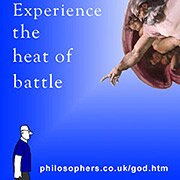John Cottingham nominates the ninth of our fifty best ideas of the twenty-first century

tpm cover art by Felix Bennett
We all want our lives to be meaningful. Indeed, I would argue that meaningfulness is one of the principal ingredients of a fulfilled human existence. Unlike other animals, humans have an inbuilt restlessness – they are never content just with the satisfaction of their material needs, or even with the mere achievement of whatever targets they are set by themselves or others. They want it all to mean something.
The current intellectual landscape is exciting because many philosophers are finally, more than a hundred years after Nietzsche and Darwin, seriously addressing the challenge these two giants posed for our human self-understanding. Essentially that challenge is whether we can accept that our all our values are merely the result of a contingent chain of events – the series of cosmic accidents and evolutionary pressures that shaped us. In place of the traditional religious idea that our deepest aspirations reflect the source of goodness that gives ultimate value and purpose to human life, the Nietzschean and Darwinian framework concludes that we have to find meaning and value for ourselves. In a godless universe, there are no “eternal” or “ultimate” values, merely whatever temporary goods we can secure from the projects we decide to pursue.
It’s perhaps no accident that, against this background, the “God question” is also back on the agenda. Philosophers, to be sure, have always discussed arguments for or against God’s existence, but the militancy of the so-called “new atheists” has brought religion to the foreground of debate, not just as a series of abstract academic puzzles, but as a question that lies at the centre of our human search for meaning and value. This makes philosophy more interesting, more connected to the wider concerns of ordinary thinking people, than it has been for some time.
In three of my own books, On the Meaning of Life, The Spiritual Dimension and Why Believe?, I have defended a religious framework for addressing the problem of the meaning of life. This is but one small contribution to a debate that is gathering momentum year by year. The atheistic framework has eloquent philosophical advocates, including the editor of tpm. What strikes me about many of these debates is the amount of common ground shared. There is an overwhelming consensus about the importance in human life of certain core values such as justice and compassion; but the crucial question remains as to whether the primacy and authority of these values (what philosophers call the “normative” dimension) can be preserved within a wholly secular framework.
This is a momentous question. Our human struggle to achieve meaning and value takes place in a world beset by fragility, and the ever-present threat of alienation, futility and despair. Of course these are perils far too great to be overcome by philosophical inquiry alone. But philosophy can perhaps help us to understand the dangers a little better, and to try to discern how we might learn to face them with courage and hope. There has never been a more exciting time to engage with philosophy.
Further reading
On the Meaning of Life, John Cottingham (Routledge)
John Cottingham is emeritus professor of philosophy at the University of Reading.
Read all fifty ideas and more in the special 50th issue of tpm
 Email This Post
Email This Post 



In whose minds does the crucial question referred to above remain? Certainly not mine. A better question, admittedly not crucial, is whether it would be possible to do worse in preserving the core values, justice and compassion, than they existed and exist within wholly religious frameworks.
im sorry if my english is not so good, in your article above, do you mean after thousands of years of philosophy appeard & asked about the existence of God & Mankind, you still dont get the answear to that questions??? Maybe you have never read Al quran. In Alquran it is mentioned that ‘Wa ma khalaqtul jinna wal insa illa liya’budun’ (adz dzariat 56) it means ‘it is I createad Jinn & Mankind except to worship (beribadah) Me. The essence of this verse is ALLAH (God) is real, Jin & human creations function is only to worship ALLAH. Nothing but ALLAH